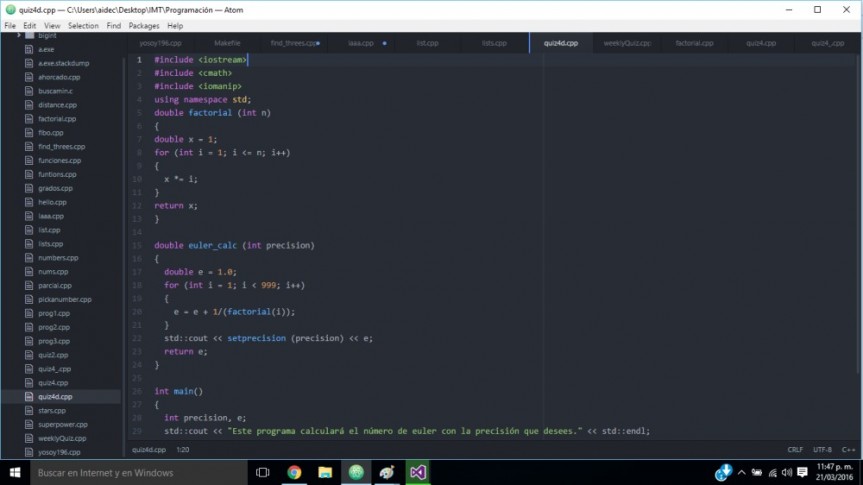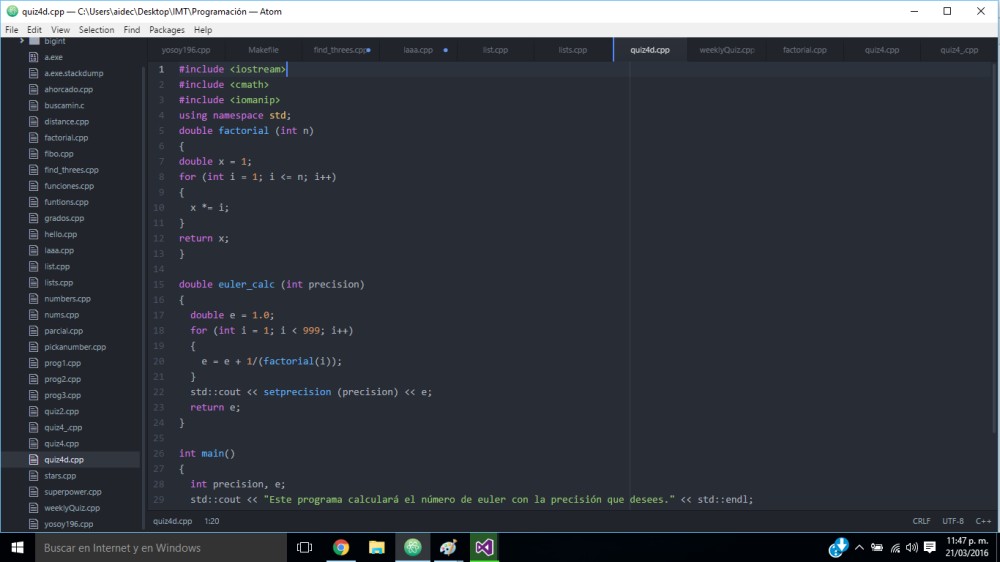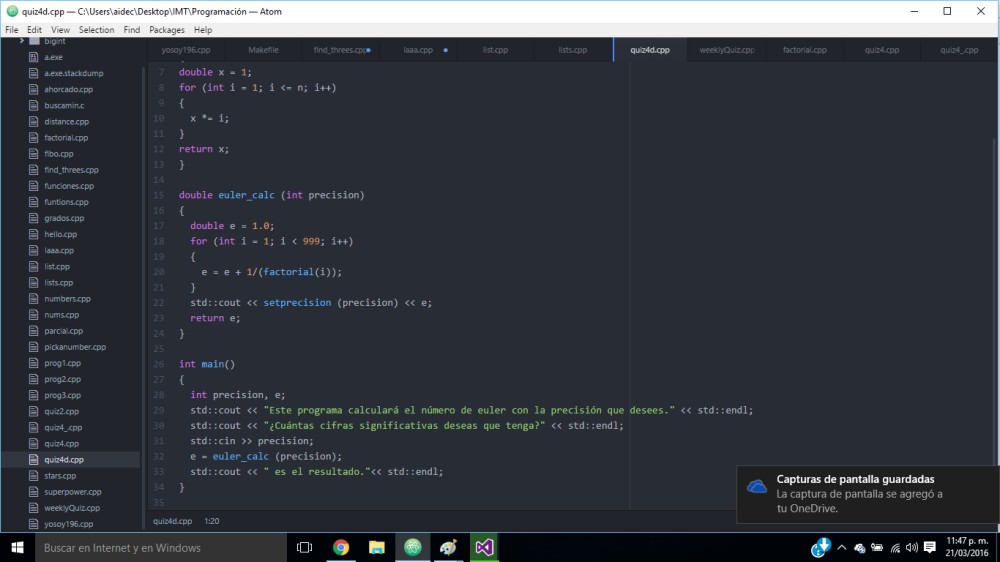Quiz 1
#include <iostream>
#include <conio.h>
using namespace std;
int main()
{
float r, h, v;
cout<<“Dame el radio: “;
cin>>r;
cout<<“Dame la altura: “;
cin>>h;
v=3.1416*r*r*h;
cout<<“el resultado es “<<v;
getch();
return 0;
}
#include <iostream>
#include <conio.h>
#include <cstring>
using namespace std;
int main()
{
int resul2, num1, num2,resul3;
float resul1;
cout<<“Dame un numero: “;
cin>>num1;
cout<<“Dame otro numero: “;
cin>>num2;
resul3=num1*num2;
resul2=(int)num1/num2;
resul1=num1/num2;
cout <<“nEl resultado de multiplicarlos es “<<resul3;
cout <<“nTu resultado de una division entera es “<<resul2;
cout <<“nEl resultado de una division con decimales es “<<resul1;
}
#include <iostream>
#include <conio.h>
#include <cstring>
using namespace std;
int main()
{
int resul2, resul1, resul3, resul4;
float num1, num2;
cout<<“Dame un numero: “;
cin>>num1;
cout<<“Dame otro numero: “;
cin>>num2;
resul1=num1*num2;
resul2=num1/num2;
resul3=num1+num2;
resul4=num1-num2;
cout <<“nEl resultado de multiplicarlos es “<<resul1;
cout <<“nEl resultado de una division es “<<resul2;
cout <<“nEl resultado de una suma es “<<resul3;
cout <<“nEl resultado de resta es “<<resul4;
}
Quiz 2
#include <iostream>
#include <stdio.h>
using namespace std;
int main()
{
int num, i;
i=1;
cout<<“nCuantos estrellas quieres: “;
cin>>num;
do
{
i++;
cout <<“*”;
} while(i<=num);
getchar();
return 0;
}
#include<iostream>
#include<math.h>
long superpower(long a,long b)
{
using namespace std;
long res;
res=pow(a,b);
cout << “El resultado de “<<a<<“^”<<b<<“=”<<res<<endl;
}
int main(){
using namespace std;
long base,exp;
cout << “Dame la base del numero a elevar”<<endl;
cin>>base;
cout << “Dame el exponente del numero a elevar”<<endl;
cin>>exp;
superpower(base,exp);
system(“pause”);
return 0;
}
Quiz 3
#include <iostream>
#include <cmath>
#include <math.h>
#include <conio.h>
#include <stdio.h>
using namespace std;
int main()
{
int x1,x2,y1,y2;
double x,y,result;
cout <<“nDame la cooordenada x de el eje x del primer punto”<<endl;
cin>>x1;
cout <<“nDame la cooordenada x de el eje y del primer punto”<<endl;
cin>>y1;
cout






